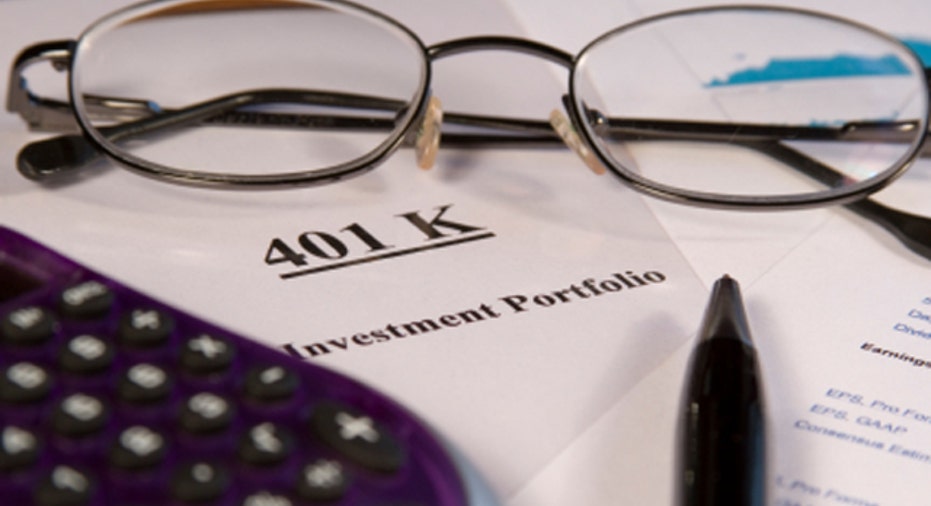Why You'll Likely Need Less in Retirement

This is a post from staff writer Robert Brokamp of The Motley Fool. Robert is. Robert is a Certified Financial Planner and the adviser for The Motley Fool's Rule Your Retirement service. He contributes one new article to Get Rich Slowly every two weeks.
Retirement planning is ultimately a math equation: Input several variables, and estimate whether what you'll have will pay for what you need. The challenge is that many of these variables are future values that are unknowable today. However, that doesn't mean we can't make some educated guesses. So let's glance into our murky crystal ball and examine the “what you'll need” part of the equation - how much the retired life will cost you each year.
The standard rule of thumb is that retirees need 70% to 80% of their pre-retirement income. To see if this has any basis in reality, let's investigate how spending changes as we age by looking at the Consumer Expenditure Survey, produced every year by the U.S. Bureau of Labor Statistics. (Motto: “You're More Than a Number, Though Not to Us.”) The following table highlights average income and expenditures of households led by people in different age groups. (I selectively chose particular categories; however, the full survey has many more items.)
As you can see, expenditures peak somewhere between ages 45 and 54, and then gradually decline. Here are some of the reasons.
- Fewer people under the roof. Eventually, the kids leave the house and become adults, and you don't have to spend so much money on food, utilities, education, and Febreze. Also - and this is the sad part - a spouse will pass away. When a two-person household goes down to a one-person household, expenses drop by approximately 30%.
- We eat less as we age. As our metabolisms slow down, so does our need for calories. Unfortunately, another reason some older people eat less is increased difficulty with shopping and cooking.
- The mortgage eventually gets paid off. 55% of households in the 45-54 age group have a mortgage, whereas just 13% of the 75-and-older group still have that monthly payment.
- We just slow down. As we age, we spend less on entertainment, clothes, travel, and other semi-discretionary expenses. As a writer and former English teacher who is married to a writer, I was heartened to see that expenditures on “Reading” generally increase as we age, with just a slight dip after age 75.
- We don't save for retirement forever. Once you retire, you'll stop paying the 7.65% FICA tax that pays for Social Security and Medicare (15.3% if you're self-employed) and you'll stop contributing to your 401(k)s, IRAs, and other savings vehicles. This alone could shave 15% to 25% off your pre-retirement expenses.
- Uncle Sam likes older people. Senior citizens pay much less in taxes, for several reasons: They receive a higher standard deduction, most Social Security is not taxed, and other sources of income - such as qualified dividends, municipal bond interest, and long-term capital gains - are taxed at lower rates than ordinary income. Plus, as you can see from the first row in the table above, income declines as we age, which puts most older people in the bottom two tax brackets.
Not every expense decreases as we age - notably, health care costs increase. Also, there's a legitimate question about whether senior spending declines out of choice or necessity - i.e., retirees would spend more if they had more. However, for many of the categories, the spending declines are the logical result of getting older and not working anymore. Thus, on the whole, the evidence indicates that the old rule of thumb - “you'll need 70% to 80% of your pre-retirement income in retirement” - has its foundation in reality.
But you're not a thumb However, while the average retiree spends less than the average 50-year-old, this is not the case for every retiree. Many spend quite a bit more, especially in the first few years of retirement, as they fill their newfound free time with travel, hobbies, classes, and other forms of recreation. Others see their income needs drop to half of their pre-retirement income. So when it comes to your own financial planning, especially once you're within a decade of retirement, it's important to actually look at your budget and estimate how much you'll actually need after you kiss the boss good-bye.
The original article can be found at GetRichSlowly.org:Why You'll Likely Need Less in Retirement



















